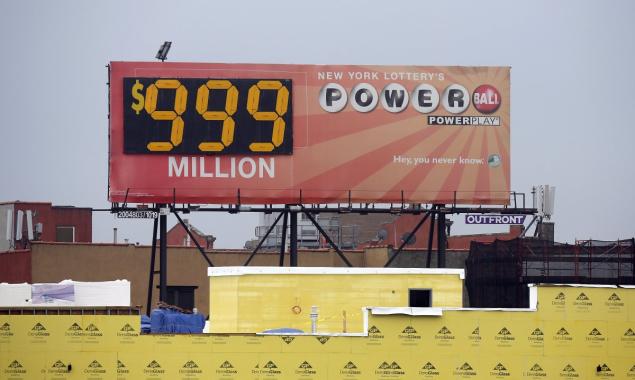Powerball Fever as Jackpot Reaches $1.5 Billion World Record
Posted on: January 12, 2016, 01:59h.
Last updated on: January 12, 2016, 01:59h.

The Powerball Lottery in the US has reached a heart-stopping $1.5 billion, a lottery world record, and Powerball fever is now taking hold across the globe.
That’s because while ticket sales are legal in 44 American states, there are no restrictions at all on where you have to reside to win it.
So anyone, anywhere in the world could be rubbing shoulders with Donald Trump after taking this contest down.
While residents of Nevada, where the casino industry has kept the lottery at bay for years, might be hot-tailing it to neighboring Arizona to purchase their shot at the prize, there are a slew of companies that buy up tickets in bulk and sell them internationally, and they’ve never had it so good.
The rule is that a winning ticket must be bought and claimed in the same state, which means third-party lottery companies will buy and collect winnings on behalf of their international clients.
Martin Rossman, a representative of one such company, Lotter, told the UK’s Guardian newspaper on Sunday that his firm had already sold over 55,000 tickets around the world, many in the UK. And that number is likely to increase as a result of all the media coverage.
“The $1.3 billion [now estimated at $1.5 billion] is immense, unbelievable, insane, and people are going crazy over it,” he said. “A lot of people in the UK and all other countries are really going for it.”
$1,500,000,000 at 1: 292,201,338
The nosebleed draw, which takes place on Wednesday, has not been won since November 7th, and has ballooned to such an extent that billboards are unable to show the full figure because they’re not built to handle that many digits. So the jackpot is currently showing at a paltry $999 million instead.
We don’t want to sound like party poopers, of course, but the odds are stacked against you, and astronomically so, at 1: 292,201,338.
You have more chance of being struck by lightning, several times, before you win this Powerball jackpot, or, as associate professor of biostatistics at the University at Buffalo Jeffrey Miecznikowski told Reuters last week, of flipping a coin 28 times and getting heads every time.
“It doesn’t sound so bad … but you would be at it for an eternity,” Miecznikowski said.
But, Jeff, you gotta be in it to win it, right? After all, somebody’s got to win it, it might as well be you.
Tax and Spend
This is true, and what if you do in fact become an overnight billionaire? Think all your financial worries are over? Far from it, because greedy ol’ Uncle Sam will be dipping his fingers into your stash faster than you can say “tax dodge.”
What’s the tax hit on that $1.5 billion, you ask?
Well, assuming you don’t have to share your jackpot with a player pool or other winners, the answer is: it depends.
The full sum is only available to you if you agree to take your winnings in 30 payments of $50 million over a period of 29 years. If you want a lump sum, you will lose 39 percent immediately just because, and a jackpot of only $930 million kind of loses its luster, don’t you agree?
But back to taxes. Lottery winnings are taxed as income, and it may come as no surprise that those ten figures will qualify for the highest federal income tax bracket, 39.6 percent.
Foreigners fare a tad better, with a hit of just 30 percent, but they may then have to settle up in their own country. Depending on their own domestic gambling tax laws, they could come out even worse than an American.
But US winners will also have more pipers waiting in line to receive their pound of flesh. Depending on where you live, state taxes, county taxes, and city taxes wait to snitch your stash, and some of those add up to so much, it’s barely worth making the drive to the 7-11 to purchase a ticket when you tally the various vigs.
In fact, the “unluckiest” lucky winner, CNBC has calculated, may end up with a measly $422.2 million after everyone has taken their piece of the pie. We don’t know what state or country that’s for, but it puts us in a state of downright depression.
Related News Articles
Nevada Casinos See Massive Revenue Spike in May
Most Popular
Mirage Las Vegas Demolition to Start Next Week, Atrium a Goner
Where All the Mirage Relics Will Go
Most Commented
-
Bally’s Facing Five Months of Daily Demolition for Chicago Casino
— June 18, 2024 — 12 Comments
















No comments yet